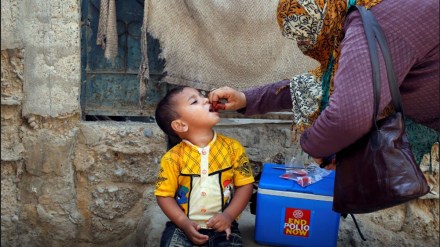Wild Poliovirus (WPV), an old life threatening disease that has been eradicated in most parts of the world, recently saw a jump in Pakistan and Afghanistan. As per Pakistani News Channel, the health department of Pakistan has detected 4 cases of Wild Poliovirus 1 (WPV1) in different parts of the country.
The Pakistan Polio Laboratory at the National Institute of Health collected positive samples from Karachi, Peshawar, Rawalpindi, and Chaman and found its origin from Afghanistan. While India has reported zero cases since 2011, countries like Pakistan and Africa are still fighting against the virus.
About Wild Poliovirus
Wild Poliovirus (WPV) is a contagious disease that primarily targets children of age below 5 leaving the body permanently disabled and sometimes absolute death. The virus transports through faecal-oral routes and contaminated water or food. According to health experts the sole preventive measure is timely vaccination to children.
Since 1988, there have been fewer than 99% fewer cases of wild poliovirus, from an estimated 350 000 cases in over 125 endemic countries to 6 reported cases in 2021. Of the three wild poliovirus strains (type 1, type 2, and type 3), type 2 was eliminated in 1999, while type 3 was eliminated in 2020. As of 2022, Pakistan and Afghanistan are the only two nations still home to endemic wild poliovirus type 1.
The World Health Organisation (WHO) has suggested some measures for infected countries regarding the transmission, it says, “any country infected by poliovirus should declare the outbreak as a national public health emergency, consider vaccination of all international travelers, ensure such travelers are provided with an international certificate of vaccination.”
Re-emergence in Africa
Last year, 2022, two states of Africa, Mawai and Mozambique, reported two cases of WPV type 1, both of them linked to Pakistan origin. However, in August 2020, Africa was certified polio-free and removed its name from the list of polio infected countries by WHO after being clear for three years.
WPV transmission is likely made possible by Africa’s weak and unstable health systems, which result from bad health governance, subpar infrastructure, a lack of healthcare staff, a lack of key medications, and inadequate health funding.
Pakistan’ take on WPV
According to the report, ARY News said that Minister of Health Dr. Nadeem Jan voiced alarm over the virus’ discovery in environmental samples and ordered officials to take all reasonable precautions to safeguard children from the virus that causes the debilitating sickness.
Sewage samples from Dera Bugti in Balochistan and Peshawar had tested positive for the poliovirus, according to a representative of the National Institutes of Health (NIH) polio laboratory. Both viruses were identified in sewage samples and resemble the poliovirus seen in Afghanistan.
